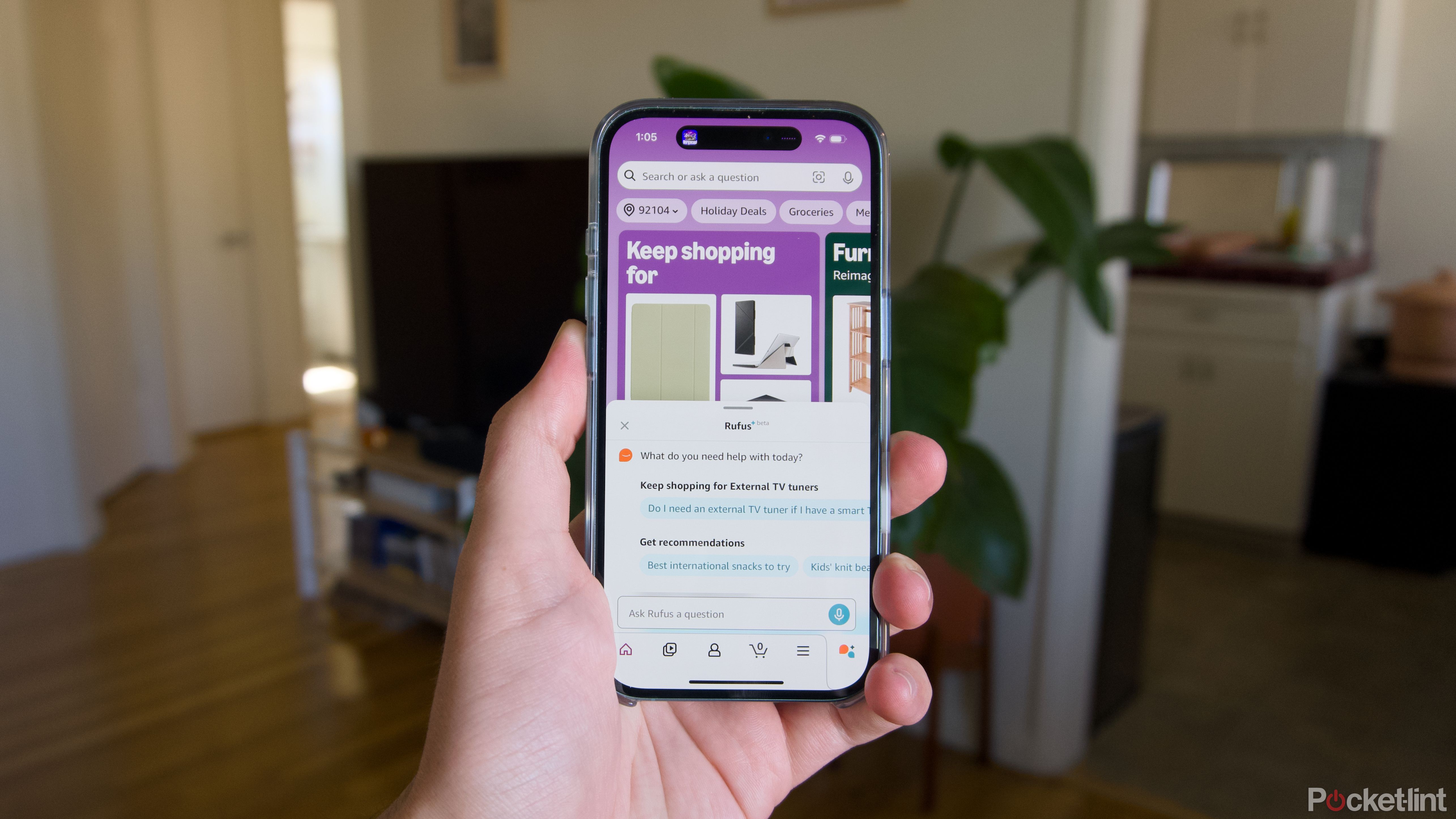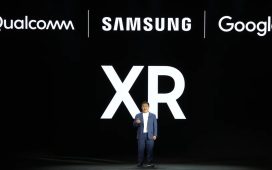Key Takeaways
- Amazon’s Rufus is an AI shopping assistant for answering questions about products in its marketplace.
- Rufus is accessible without Amazon Prime, offering product recommendations and detailed information.
- Rufus can help you narrow your search and compare types of products.
Amazon’s best known AI product, and possibly one of the most recognizable AI’s in the world, is Alexa. But over the last few years, the company has been spending just as much time building new experiences with generative AI in order to keep up with the likes of Google, Apple, Microsoft, and OpenAI. The most high-profile result of those experiments, beyond some promises to add generative AI to Alexa, is an AI shopping assistant called Rufus.
Amazon Rufus was launched as a small test for Amazon customers in Feb. 2024, before becoming widely available to shoppers in the US on September 18th, and rolling out to Europe at the end of October. The chatbot lives inside of Amazon’s website and the Amazon Shopping app and is purpose-built to make the increasingly complicated task of navigating Amazon’s marketplace simpler. Here’s what you need to know about Rufus’ abilities and how to best use them when you’re shopping on Amazon.

Related
Amazon brings color and AI to its refreshed Kindle series
Amazon has revealed a comprehensive refresh to its Kindle lineup, including a color Kindle for the first time.
What can Rufus do inside of Amazon?
The assistant is trained on everything from reviews to content from the web
Amazon positions Rufus as an “expert shopping assistant” that’s capable of making recommendations, answering specific questions about products, and guiding customers towards listings that will be the best fit for whatever project or goal they’re trying to complete. Rufus is a bit like a seasoned store employee in terms of its level of expertise, but without a personality, and with an internet-sized catalog of products to be knowledgeable about.
The obvious caveats of other generative AI-powered chatbots still apply, though. Rufus is in beta and can both make mistakes and lie, just like ChatGPT or Google Gemini. The chatbot is also just much more wooden than other AI assistants you might be used to speaking to. View what Rufus shares purely as a personal recommendation or guess, not the final say on any product you’re trying to buy. There’s still every reason to read reviews on Amazon and publications like Pocket-lint before you commit to anything.
Rufus is a bit like a seasoned store employee in terms of its level of expertise, but without a personality, and with an internet-sized catalog of products to be knowledgeable about.
You don’t need Amazon Prime to access Rufus
Unlike some of Amazon’s other services, you don’t need to pay for Amazon Prime to access Rufus, though you will need a free Amazon account, and if you plan on talking to Rufus on the go, the Amazon Shopping app needs to be installed on your phone. Rufus also won’t work if you don’t have an internet connection and if you’re not in one of the regions where the assistant is currently available.
How do you use Rufus to shop on Amazon?
Rufus can help you know what to look for
One of the simplest ways to use Rufus is to use its general knowledge of products available on Amazon to help narrow your search. If you’ve never purchased a stand mixer before, for example, Rufus can share questions you should ask yourself before you make your purchase or qualities to look for in a good mixer.
In my experience, Rufus can produce a lot of text for these responses, which might not work for anyone looking for a quick or straightforward answer. The automatically generated follow-up questions you can tap to ask Rufus might narrow things down further, but until Amazon makes Rufus more flexible, you should get comfortable with the occasionally lengthy response.
Rufus can share details about a product you’re considering
If you’re already looking at a product, Rufus can answer questions and share specific details about it that might not immediately be clear from the product page. If I’m looking at a cover for my iPad, but I’m not sure which models it’s compatible with, I can ask Rufus for clarification or for information about what material the cover is made of. The assistant knows what I’m referring to by having some kind of awareness of whatever page I’m currently on.
Rufus also seems capable of pulling information from reviews to answer questions.
Amazon’s product pages are pretty informationally dense, and can vary in quality and detail from vendor to vendor. Having Rufus dig through it for you is helpful in theory, but it has limits, too. The iPad cover (Apple’s own Smart Folio) is only listed as being compatible with the M2 iPad Air, but I know for a fact the 11-inch model will fit just as well on a 5th-generation iPad Air. The product page on Apple’s website even confirms this. Rufus can’t connect those dots and only confirms what’s on Amazon’s listing, despite having the measurements for the case and an older iPad Air theoretically in its database of knowledge.
Rufus can compare different types of products you might want to buy
If you know you need a spatula for your kitchen, but you don’t know if you should buy one that’s rubber or metal, you can ask Rufus and have it weigh the pros and cons, with links to corresponding products. You can follow those links if Rufus’ explanation clarified things for you, or you can ask a follow-up question for more information to help you make your decision.
If you’ve tried making these kinds of comparison shopping requests to a more fully-featured AI assistant like Gemini or Microsoft Copilot, what Rufus offers seems very surface-level. Rufus doesn’t make charts or spec tables to refer to, and doesn’t do a very good job of changing its comparisons on the fly. If there’s another product you want to switch to and have the assistant analyze, you can’t do it. That doesn’t feel very smart unless you have no understanding or knowledge of the products you’re comparing.
Rufus can point you in the direction of products when your goal is more abstract
Rufus does a much better job of recommending products if you have a more nebulous goal or hobby that you want to get started with. When I asked Rufus about getting started making greeting cards, it was able to recommend card stocks, presses, and die-cutting machines to look at, which was a great starting place for further research.
The response wasn’t as in-depth as asking someone who actually makes greeting cards for a living, and my off the cuff follow-up questions didn’t get me any kind of useful response, but it’s a start. Rufus gets a lot of these kinds of surface-level skills right, it’s just not very deep otherwise.
Rufus could be a vital part of buying things on Amazon
There are a lot of things that Rufus could do better, but as Amazon gets more clogged with confusingly named products, what the chatbot can do seems like a useful way to cut through the noise. Hopefully, it will get more capable over time, or at least act more like a real chatbot you can talk to, instead of the rigid tool Amazon has now.

Amazon Shopping
The Amazon Shopping app lets you do everything you can do on the normal Amazon website directly from your phone, including making purchases, managing existing orders, and interacting with Rufus, the company’s AI shopping assistant.
Rufus is a generative AI from Amazon you can try right now, but a new generative AI-infused version of Alexa is on the way, and could require a subscription to use. Until then, Gemini Live and ChatGPT Voice go a long way to demonstrate the AI assistant world we could be entering soon.
















